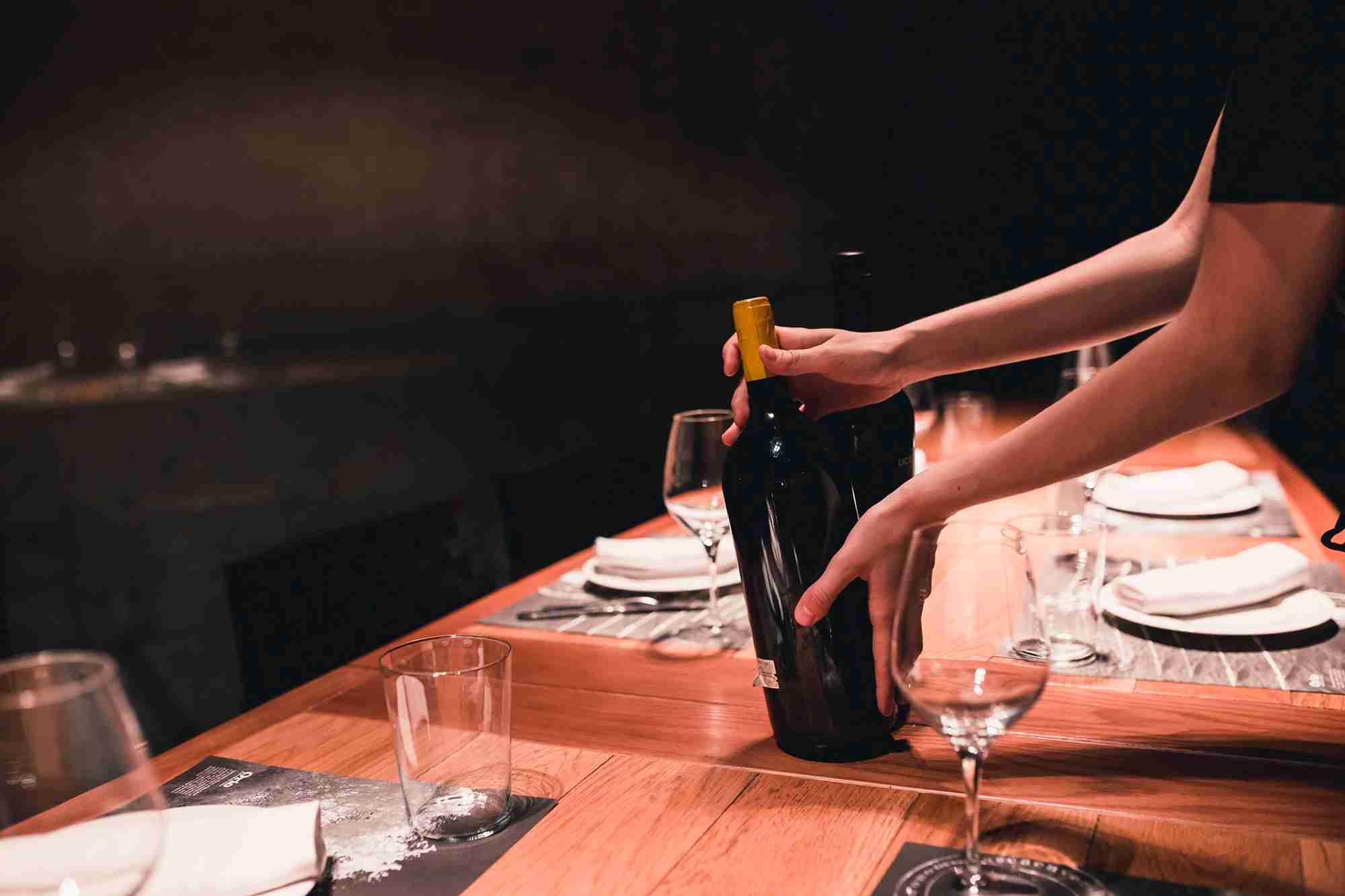 SHARE
SHARE
What is a Corkage Fee? Understanding Its Meaning and Application in Restaurants
Sovia
Have you ever wanted to bring your favorite wine while dining at a restaurant? Some restaurants do allow guests to bring their own beverages, but they usually charge an additional fee known as a corkage fee.
Many people are still confused about this concept, why do restaurants charge a fee when guests bring their own drinks?
In this article, we will comprehensively discuss what a corkage fee is, why restaurants implement it, and how this policy also applies to hotels.
Let’s dive in!
What is a Corkage Fee?
A corkage fee is a charge that restaurants impose on guests who bring their own wine or alcoholic beverages to consume on-site.
This fee covers the services provided by the restaurant, such as opening the bottle, pouring the wine using proper techniques, and providing appropriate glassware.
Restaurants generally implement a corkage fee as an alternative for guests who prefer to enjoy their own drinks without compromising the value of the restaurant’s services.
The fee amount varies depending on the restaurant’s policy, the type of wine brought, and the level of service provided.
Some restaurants may waive the corkage fee if guests also purchase beverages from their wine list.
However, most establishments still charge this fee to ensure they generate revenue from the services they provide, even if guests do not purchase drinks from the restaurant.
Apart from restaurants, this concept also applies to hotels. A hotel corkage fee is charged to guests who bring in outside beverages or food and wish to consume them within the hotel premises.
In some cases, if guests want to use the hotel’s kitchen facilities to prepare their own food or drinks, the hotel may impose a corkage fee according to their policies.
Read more: Understanding the Difference Between Service Charge and Service Tax in Restaurants
Why Do Restaurants and Hotels Implement a Corkage Fee?
There are several key reasons why restaurants charge a corkage fee. Besides serving as an additional revenue source, this fee ensures that service remains professional and fair to all guests.
Here are some of the main reasons:
1. Covering the Cost of Professional Service
Even if guests bring their own wine, restaurants are still responsible for serving it at a high standard.
Wine service is not just about opening a bottle and pouring it into a glass.
Restaurants ensure that the wine is served at the right temperature, using glassware suited to its characteristics, and poured correctly to enhance its taste.
Some wines also require decanting to remove sediment and enrich their flavors before being served.
Additionally, restaurant staff must be skilled in handling wine properly.
They need to know how to open a bottle without damaging the cork, pour wine elegantly, and refill guests' glasses without disrupting their dining experience.
All of these services contribute to a high-quality dining experience and deserve recognition.
2. Compensating for Potential Revenue Loss
Beverage sales, especially wine, are one of the main revenue streams for restaurants.
When guests bring their own drinks, restaurants lose the opportunity to sell beverages from their menu.
The wine sold in restaurants typically has a higher markup than retail prices.
This markup is not just for profit but also covers storage costs, refrigeration, inventory management, and staff training in proper wine service.
Moreover, guests who order wine tend to spend more time at their table, which can reduce the number of guests a restaurant can serve in one night, particularly in high-demand establishments.
By implementing a corkage fee, restaurants can still generate income from guests who bring their own wine while maintaining their business balance.
3. Protecting Restaurant Investment in Wine Programs
Restaurants with a quality wine collection have invested heavily in curating and maintaining it.
Creating a well-balanced wine list that complements the restaurant’s menu is no easy task.
Restaurants must collaborate with distributors, select wines that match their food offerings, and set fair prices for customers.
Some even hire sommeliers to ensure their wine selection is top-notch and enhances the dining experience.
If too many guests bring their own wine without purchasing from the restaurant, the investment made in developing a wine program may go to waste.
The corkage fee helps restaurants maintain the quality of their services without compromising their investment.
Tips for Implementing a Corkage Fee in Your Restaurant
Source: freepik.com
Allowing customers to bring their own beverages (BYOB - Bring Your Own Bottle or Bring Your Own Beverage) can be an attractive strategy.
However, without clear rules, it can impact revenue and customer experience. Implementing a corkage fee is a viable solution.
Here are some tips for applying it to your restaurant:
1. Ask Customers to Contact Before Their Visit
You want to ensure that the drinks customers bring align with your restaurant’s concept. Therefore, ask them to contact the restaurant in advance to understand the corkage fee policy.
Include a message like "Please contact us for our BYOB policy" in all promotional materials. You can also place an information board at the restaurant entrance so customers understand the policy before entering.
2. Train Staff to Communicate the Corkage Fee Policy
Ensure that all staff members understand the BYOB policy and can clearly communicate it to customers.
When customers call for reservations, inquire about the menu, or visit in person, staff should mention the BYOB program. This helps prevent confusion from the start.
3. Set a Limit on the Number of Bottles Allowed
Establishing a bottle limit helps manage customer experience and restaurant operations. For example, allow one bottle for every four people in a group. If customers want more, they can purchase from the restaurant’s drink list.
4. Set a Minimum Price for the Brought Beverage
To prevent customers from bringing cheap drinks solely to avoid restaurant pricing, set a minimum price limit. For instance, the restaurant can impose a corkage fee of IDR 150,000 and prohibit drinks below this price.
5. Provide Clear Information to Customers
Ensure customers receive information about the corkage fee policy before their visit. Clear information helps them understand the restaurant’s rules and ensures a pleasant dining experience.
Read more: Do you often hear about open orders? This is the meaning & how to use it for business!
Conclusion
A corkage fee is an additional charge imposed by restaurants and hotels when customers bring outside beverages. This fee is essential for covering service costs, maintaining customer experience, and ensuring business profitability.
Enhance your restaurant’s operational efficiency with ESB Book. ESB Book is a table reservation management system designed to optimize customer experience.
This system allows restaurants to manage reservations easily through a centralized dashboard.
Integrated with ESB POS & ESB Order, it can also be connected to merchants’ marketing channels.
Manage table reservations effortlessly with ESB Book! Contact us now and consult your business needs!
 SHARE
SHARE





